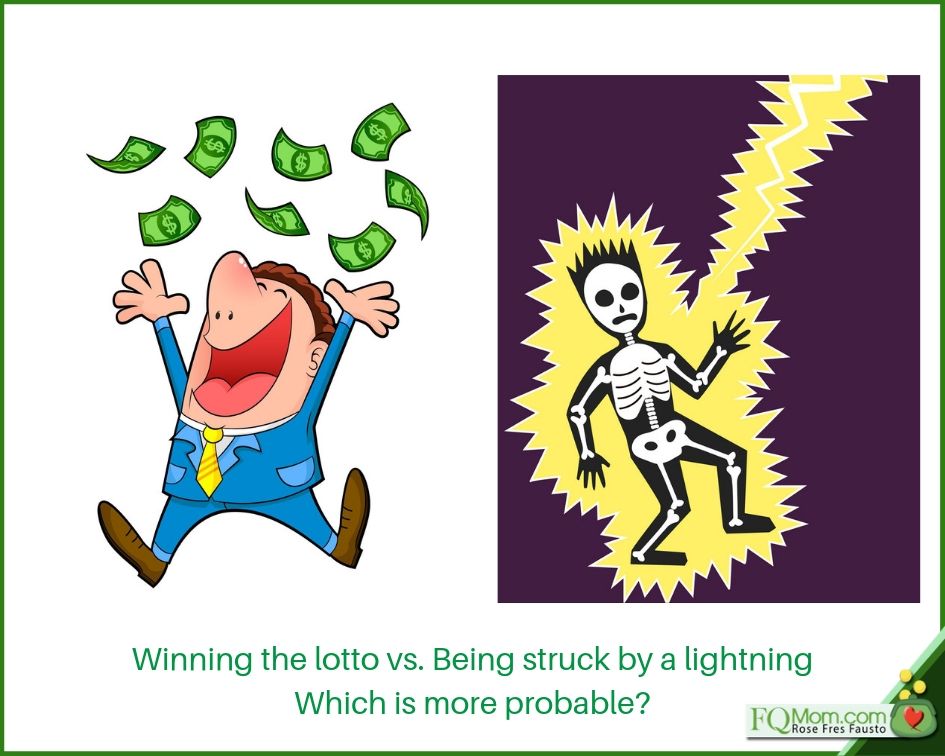KAPAg sobrang taas ang pangakong kita, kataka-taka!


(Why people are drawn to scams)
Financial scams come and go. The same old tricks played by different characters using essentially the same principles.
It’s a puzzle why even if we say time and time again that If it is too good to be true, it is not true. It is a scam! people still fall prey to this same old trick! Bakit ang tigas ng ulo?

The latest addition to big time financial scams in the country is that of Kapa MinistryInternational Inc. (Kapa), founded by Pastor Joel Apolinario. It claims to help millions of Filipinos grow their money, by paying out a hefty (I think a need a stronger adjective here) return of 30% per month for life after a one-time donation anywhere from P10,000.00 to P2,000,000.00.
The interesting thing about this scam is that there is no complaint from the members, now running at five million. In fact, last Friday, I spoke to someone who personally invested P50,000.00 and is not complaining, “Naku, ma’am, okay lang sa akin kahit hindi na ako bayaran ulit ng Kapa, kasi bawi ko na ang perang nilagay ko!”
If you go online, you will also find protesters, not against Kapa, but against the government for closing down the company. Some say that these are donations anyway, never mind that the definition of donation is that it is a voluntary gift without consideration but the contract stipulates a return of 30% per month. Apolinario’s defense was that Kapa has legitimate investments in businesses, but these are mostly start-ups. In fact, according to Kapa’s 2017 financial statements, total assets was only at P465,000.00 with liabilities of P170,000.00, for a net asset value of only P295,000.00. Its total revenue was only P425,000.00. (Note: No 2018 FS were submitted).
Given the above, there is no way that 5 million members even with just the minimum P10,000.00 investment can be paid the 30% per month return which is already P15 billion for just one month from these businesses! No way!
Let’s try to examine some behavioral factors at play here - why something so ridiculous as this are still being bought by people.
1. The opium of religion.
Karl Marx is quoted to have said, “Religion is the opium of the people.” The full quote gives us a better appreciation, “Religion is the sigh of the oppressed creature, the heart of a heartless world, and the soul of soulless conditions. It is the opium of the people.”
In a country where a significant percentage of population lives below poverty level, the lure of religious groups offering redemption is really strong. The pastor might have been very charismatic and convincing in his invitation to the people to give their money and sign that Deed of Donation that states, “The donation shall be used to achieve Kapa’s mission for the propagation of the religious faith, establishment of livelihood programs for the benefit of its members.”
However, it is noteworthy that there are “donation” amounts that could have never been afforded by the poor; hence, the speculation that KAPA could have been a money laundering scheme.

2. Herd Mentality.
It is also easier to convince people to join something if it is being done inside a community, where herd mentality can more easily work its magic, or should I say hypnotic spell? This principle describes how people can be influenced by their peers to adopt certain behaviors on a largely emotional rather than rational basis. So, forget all those financial statements that yell at you, “Hey stupid, how can a company with net worth and revenues of less than a million pesos pay out 15 billion pesos a month?”

3. FOMO.
Fear of Missing Out. Once they see some people already earning money from something, they can’t stand missing out on this opportunity.

4. Overconfidence and Lotto Mentality
Sometimes people already know that there is something fishy or way too risky in an investment, but the lure of the high return is often paired with the overconfidence of coming out as a winner. They are irrationally optimistic that they’ll be able to “get out before the music stops.” This is the same overconfidence people carry with them when instead of investing small amounts of money regularly, they’d rather buy lotto tickets regularly even if the probability of being struck by lightning is higher than winning the lottery!

5. Principle of Similarity
We tend to like people who seem just like us. Apolinario was a fisherman and construction worker earlier in his life. He later on became a radio broadcaster in his province and eventually established cooperative stores in Bislig, Surigao del Sur. Some of his followers describe their pastor as approachable, someone they can relate to. Last week I saw a Facebook post defending the Kapa operations and calling the government unfair for closing it down but turning a blind eye on other similar schemes just because Kapa is for the poor.
6. Impatience
The human wiring is such that we want things now. We are myopic and usually succumb to what feels good right now. That’s why the tried and tested formula of successful investing of just setting aside regularly, following the basic laws of money is not attractive. (Click these links for Basic Laws 1, 2, 3.) That takes too long. People would rather take the instant gratification, no matter how irrational it is.

7. Losing the sense of what’s right and wrong.
Ideally, if we see an investment opportunity with ridiculously high returns, we should already be wary about it. Ideally, we should not want to benefit from something that is not aligned with our values. Unfortunately, the lure of money is sometimes too strong that we throw our values out the window. What in the world could give a return of 30% per month, that’s 360% p.a.! If there’s anything that can give you that for sure, then it must be illegal.

8. The notion of nothing to lose.
If you are just so desperate about your financial situation, you may take that mindset that you don’t have anything to lose anyway, so you might as well take the risk, any risk.
This ties up with the first behavioral factor about the opium.
The takeaway
Scams happen all around us. You may wish to revisit Anatomy of a Scam. In as much as we condemn the scammers, we should also examine the other factors at work here. The victims are also responsible and so with our financial environment. I am glad that despite the absence of investor complaint, Kapa was ordered to cease and desist.
There’s a lot to be done in educating and most especially, in improving our investment infrastructures, but that’s another long discussion.
Let me just end with this constant reminder: Successful investing for a financially happy future is not done overnight. Stay away from too-good-to-be-true promises. Indeed, “KAPAg sobrang taas ng pangakong kita, kataka-kata!” In fact, some might even say, “Katanga-tanga!” ![]()
To avoid this, please join me in improving the Pinoy FQ, one family, one person, at a time. Share with them what you know and what you just learned. Cheers to high FQ! ![]()
*********************************
ANNOUNCEMENTS
1. MOM AND SON PODCAST SEASON 2 EPISODE 11 – (“TREAT YOURSELF” THE GUIDELINES AND TIPS)
The favorite activity of every earning citizen is “Treat Yourself.” We all deserve to enjoy the fruits of our hard work and labor right? What guidelines and tips can we follow to make sure we’re still on track with our financial journey? Check out this week’s episode to have a better understanding on the balance of treating yourself every once in a while, or if you “treat yourself” a little too often or too much.
#MomAndSonPodcast

Stream it now!
Spotify
https://open.spotify.com/episode/0iUpiYFJrR0zVESgyQIGMs?si=AYstlhMLRA2Ot6h5oZxkBQ
Apple iTunes
Buzzsprout
YouTube
2. Thanks to those who already bought the FQ Book, especially to those who took the time out to send me their feedback. Your feedback is food for my soul. To those who have not gotten their copy yet, here’s a short preview of FQ: The nth Intelligence
You may now purchase the book in major bookstores, or if you want autographed copies, please go to FQ Mom FB page (click SHOP), or FQMom.com (click BOOKS), or email us at FQMomm@gmail.com
3. Want to know where your FQ stands? Take the FQ Test Challenge now! Click link. http://rebrand.ly/FQTest

Rose Fres Fausto is a speaker and author of bestselling books Raising Pinoy Boys and The Retelling of The Richest Man in Babylon (English and Filipino versions). Click this link to read samples – Books of FQ Mom. She is a Behavioral Economist, Certified Gallup Strengths Coach and the grand prize winner of the first Sinag Financial Literacy Digital Journalism Awards. Follow her on Facebook&YouTube as FQ Mom, and Twitter&Instagram as theFQMom. Her latest book is FQ: The nth Intelligence.
ATTRIBUTIONS: Photos from handandbeak.com, oilandgaspeople.com, consumeraffairs.com, thedailystar.net, spaceship.com.au, clipartmag.com, vectorstock.com, pngfind.com, pngtree.com, wellthapp.com, clipart-library.comand csid.romodified and used to help deliver the message of the article.




















